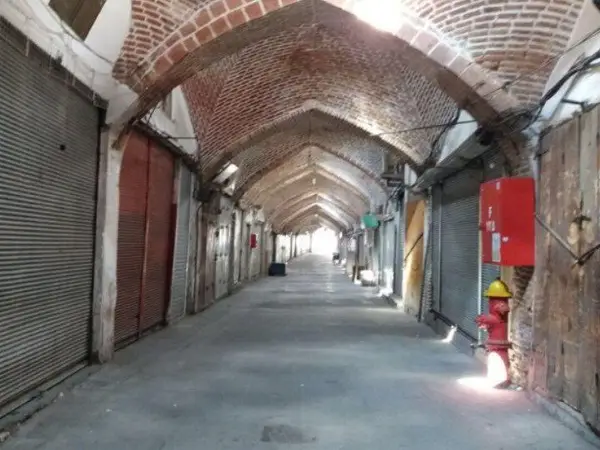In cold weather and rain, Iranians poured into streets Monday evening to hold antigovernment rallies following students' sit-ins and strikes flaring up across the country.
Iranians embarked on a three-day action on Monday with the calls focused on strikes for December 5 and 6 and rallies for December 7, Student Day in Iran, which marks the anniversary of the 1953 murder of several students at University of Tehran. It is a traditional day of nationwide rallies. To coincide with Student Day, protesters have also called for strikes by businesses and a rally towards Tehran's Azadi (Freedom) Square.
Students in many universities across Iran did not show up for classes on Monday and in some campuses, they held sit-ins and rallies to protest against the Islamic Republic and its repression machine.
Meanwhile, many shops and businesses shut their doors in a nationwide action that was so stunning that the country’s judiciary had to come up with a new propaganda line to justify the strikes. Iran's Chief Justice Gholam-Hossein Mohseni-Ejei blamed "rioters" for threatening shopkeepers. Hardliners led by the Revolutionary Guard call protesters “rioters” and “thugs”.
Emphasizing that the death sentences of several protesters have been confirmed and they will be executed soon – apparently meant to scare the demonstrators to stop their movement to oust the regime -- he added shopkeepers who close their businesses would be swiftly dealt with by the judiciary and security bodies.
Authorities also sealed a jewelry shop and restaurant belonging to Iranian football legend Ali Daei after he closed his businesses to join antigovernment strikes. Since the beginning of the uprising sparked by the death of Mahsa Amini in custody of the hijab – or the so-called “morality” police -- in mid-September, strikes have been staged in support of street protests. The authorities have kept threatening businesses that if they close in support of the protests, they will be fined, or their businesses will be sealed as punishment.
Despite Internet restrictions in many regions of the country, social media is exploding with videos of closed shops in bazaars and markets in a lot of cities and towns. Stores were shut in Tehran's Bazaar, and other large cities such as Karaj, Esfahan, Mashhad, Tabriz, Shiraz, Bojnourd, Kerman, Sabzevar, Ilam, Ardabil and Lahijan. The list of cities goes on as more videos are still being shared online.
The strikes were especially widespread in Kurdish-majority cities. Hengaw, a Norway-based rights group which monitors abuses in Kurdish areas, reported that 19 cities had joined the strike movement in western Iran, where most of the country's Kurdish population live.
When night fell, however, the same streets that sounded so calm during the day became scenes of antigovernment protests with people chanting slogans against the regime. People in several neighborhoods in large cities, such as the capital Tehran and religious city of Mashhad, blocked roads while chanting slogans and waiting for the security forces to appear. The first rain and snowfall in many cities have led to slippery roads, which protesters relish as a hurdle for the regime’s agents riding on motorcycles. In some social media videos, shots are heard with people saying that security forces opened fire at them.
